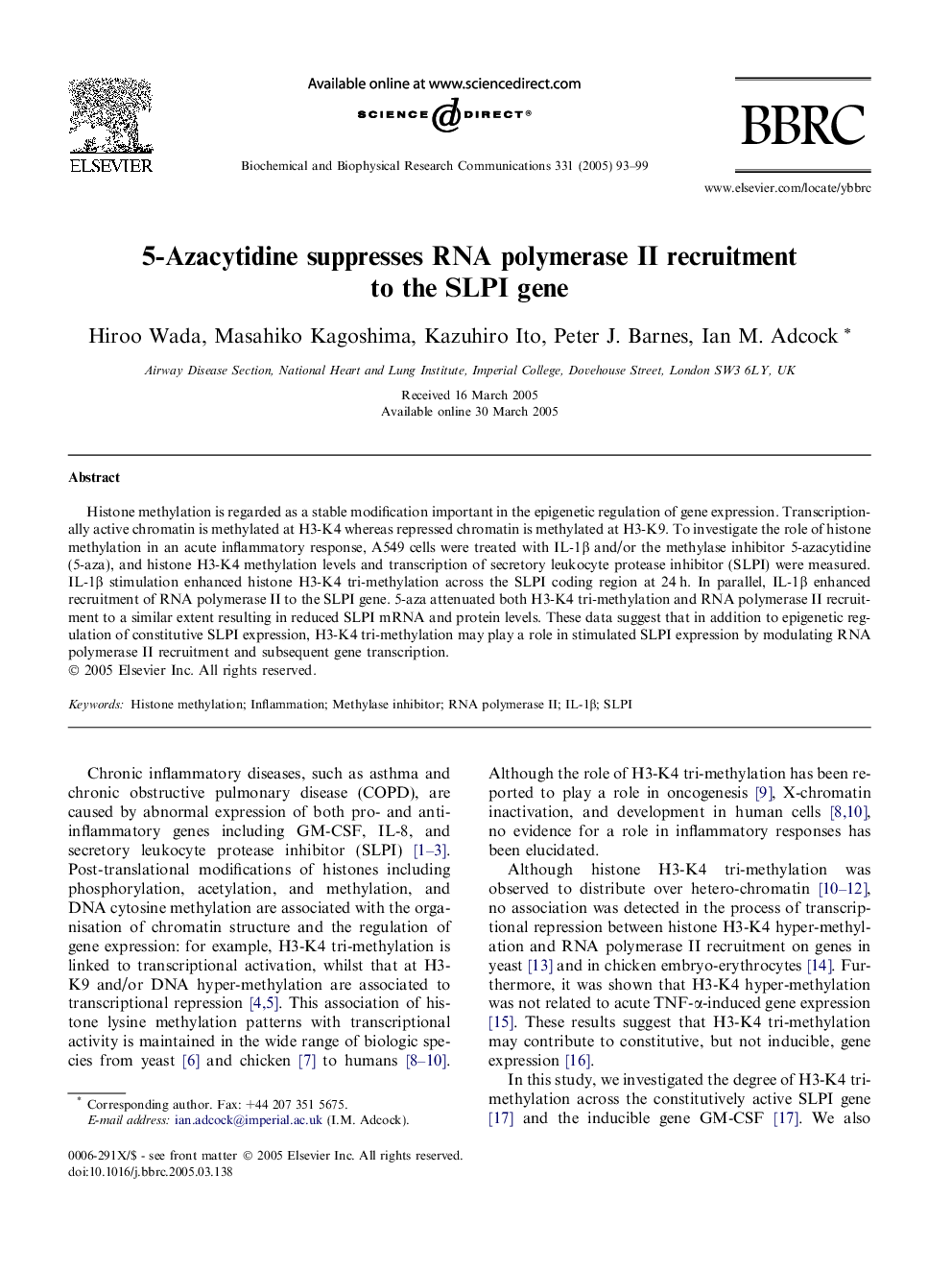| Article ID | Journal | Published Year | Pages | File Type |
|---|---|---|---|---|
| 10771333 | Biochemical and Biophysical Research Communications | 2005 | 7 Pages |
Abstract
Histone methylation is regarded as a stable modification important in the epigenetic regulation of gene expression. Transcriptionally active chromatin is methylated at H3-K4 whereas repressed chromatin is methylated at H3-K9. To investigate the role of histone methylation in an acute inflammatory response, A549 cells were treated with IL-1β and/or the methylase inhibitor 5-azacytidine (5-aza), and histone H3-K4 methylation levels and transcription of secretory leukocyte protease inhibitor (SLPI) were measured. IL-1β stimulation enhanced histone H3-K4 tri-methylation across the SLPI coding region at 24 h. In parallel, IL-1β enhanced recruitment of RNA polymerase II to the SLPI gene. 5-aza attenuated both H3-K4 tri-methylation and RNA polymerase II recruitment to a similar extent resulting in reduced SLPI mRNA and protein levels. These data suggest that in addition to epigenetic regulation of constitutive SLPI expression, H3-K4 tri-methylation may play a role in stimulated SLPI expression by modulating RNA polymerase II recruitment and subsequent gene transcription.
Related Topics
Life Sciences
Biochemistry, Genetics and Molecular Biology
Biochemistry
Authors
Hiroo Wada, Masahiko Kagoshima, Kazuhiro Ito, Peter J. Barnes, Ian M. Adcock,
